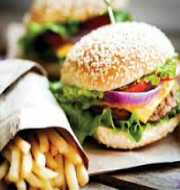Kerala Government imposes 14.5 per cent fat tax on Junk Food
Kerala Government has proposed a “Fat Tax” on fast food items like burgers, pizzas, donuts and pasta etc. served in branded restaurants in a bid to discourage the junk food culture.
The first-of its-kind move in the country was announced in the maiden budget of the CPI(M)-led LDF Government in Kerala presented by Finance Minister Dr. T.M. Thomas Issac.
The revised state budget for 2016-17 expects the Fat tax will add an additional Rs.10 crore to the state coffers. The fat tax’s major concern is with issues related to public health more than revenue generation.
Implications
- The revenue impact of the fat tax will be modest, but it could have a big impact nationwide on the food industry if other states follow suit.
- Companies will pass on this tax partially or fully to the customer which may make the customer cut back on pizzas and burgers.
- Critics believe that imposing the tax is not going to change consumption patterns but will have an impact on the volume of such food products sold.
- It will discourage junk food and play some role in healthy lifestyle of people as Kerala has one of the highest numbers of patients of diabetes or hypertension in the country caused due lifestyle changes.
Fat tax: It proposed tax on foods or drinks judged to be unhealthy and whose consumption is believed to be linked to rising obesity levels. It is similar to the sin tax imposed on items such as alcohol or tobacco to discourage their consumption. Fat tax on junk food has been successfully imposed in European countries such as Denmark and Hungary.
Note: Kerala isn’t the first state to impose so-called Fat tax. In January 2016, Bihar government decided to impose a 13.5% value-added tax (VAT) on items such as salted peanuts, samosas, sweets and a few branded snacks.
Month: Current Affairs - July, 2016


